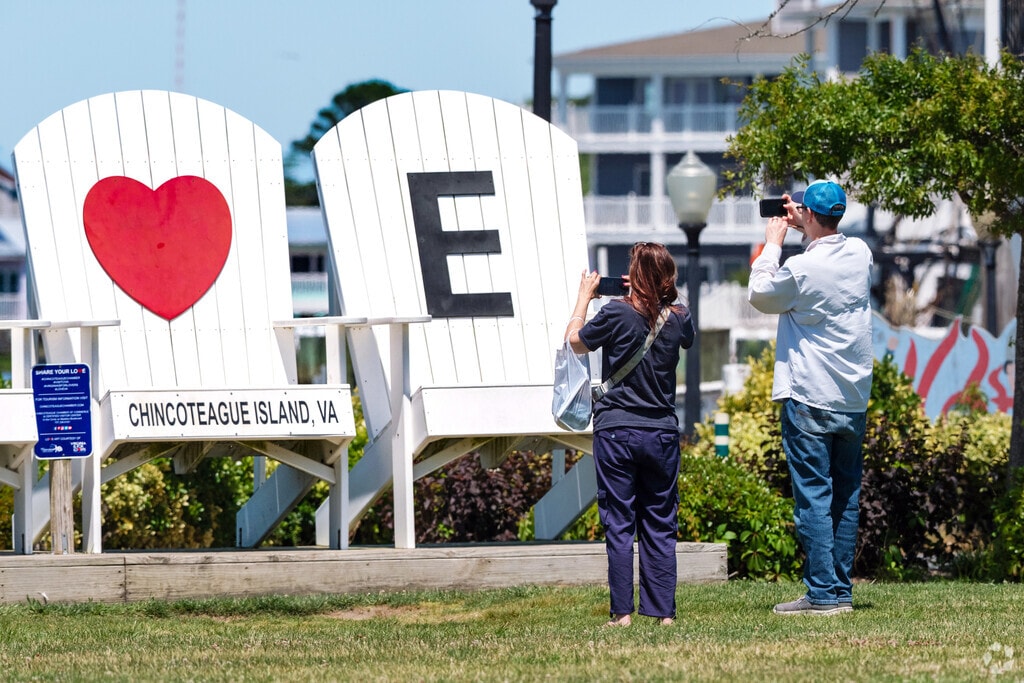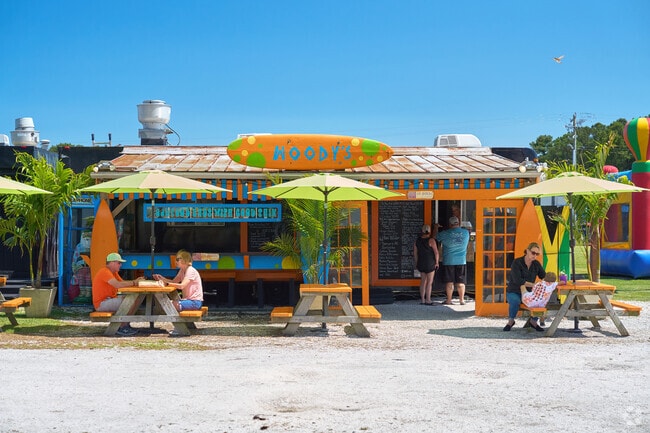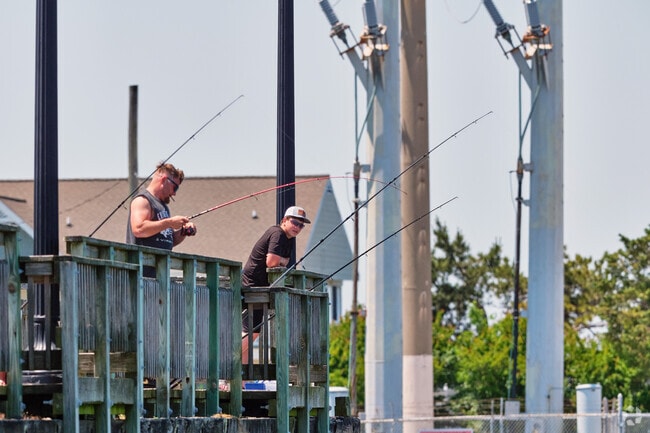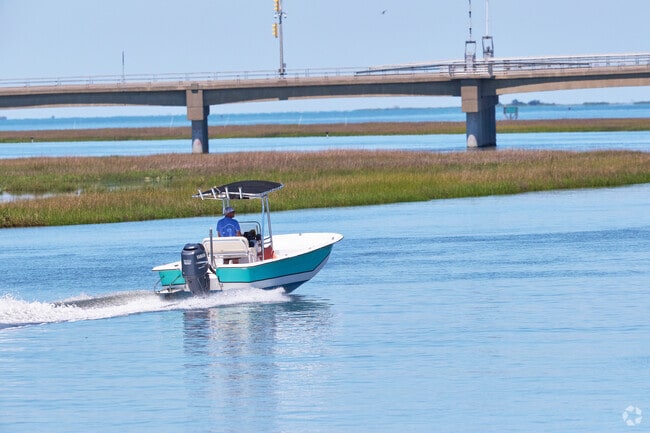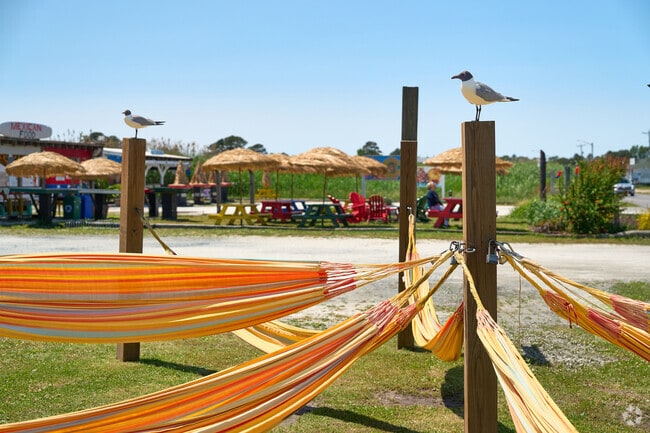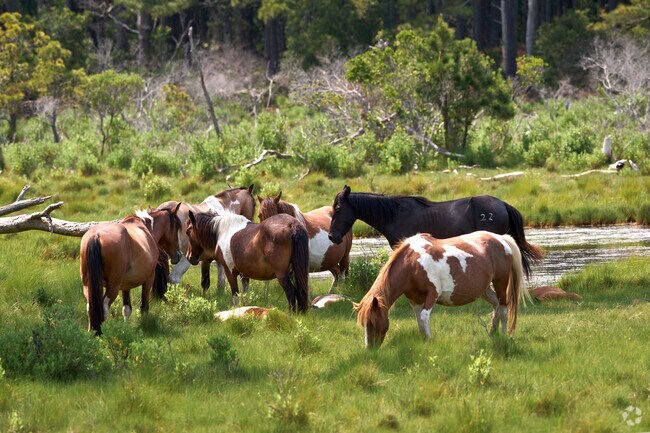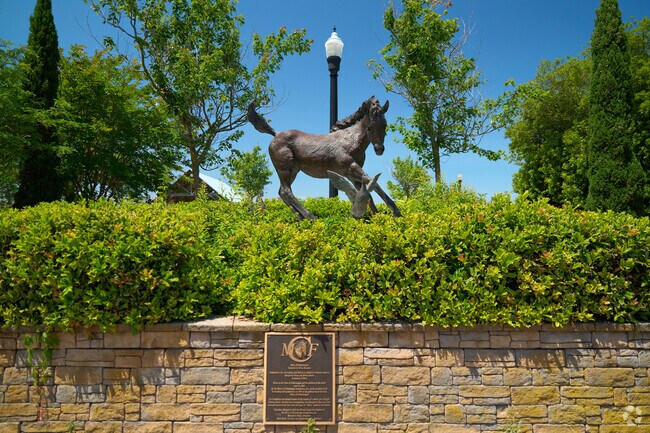Ponies are the pride of Chincoteague
Locals grow up hearing the origin story for the famous Chincoteague ponies. The story, or myth, goes like this: Hundreds of years ago, a Spanish galleon wrecked off the coast of Chincoteague and Assateague islands. The horses swam ashore, becoming the noble descendants of a herd that still roams the island.
Today, life on Chincoteague is still all about the ponies. Tourists come throughout the year, but especially during the summer, to catch sight of the semi-wild ponies, which live just across the channel on Assateague Island. “The ponies are more of a tourist attraction, but a lot of the locals really take them seriously,” says Chincoteague local Ben Clark a real estate agent with Dockside Properties. “Really just about everything people do for business is centered around that or something that can tailcoat on that.” Off season, life is slower on Chincoteague, but a steady group of full-timers enjoy the year-round outdoorsiness that comes with life on the Atlantic Coast.
Natural preserves, Assateague Beach and island parks
Chincoteague Island sits between the Delmarva Peninsula — a spit of mainland shared by Delaware, Maryland and Virginia — and Assateague Island, a barrier island that takes the full brunt of the Atlantic Ocean. A narrow channel separates the two islands, and, contrary to its name, Chincoteague National Wildlife Refuge is actually on Assateague. Fifteen miles of trails go through the marshes, where people can spot bands of ponies grazing. Horseshoe crabs and 300 bird species also call the island home. In the warmer months, people set up their umbrellas and beach chairs at Assateague Beach, a popular spot for watching the sunrise and sunset. On Chincoteague, the Veteran’s Memorial Park is home to one of the island’s five boat ramps, and a fishing and crabbing pier juts into the water. On land, there’s a playground, tennis and basketball courts, and a baseball field.
Chincoteague's diverse housing styles and waterfront homes
Chincoteague’s home styles range from ranch-style and manufactured homes to contemporaries and Victorians. However, Clark says multifamily housing is in short supply. The manufactured homes and farmhouses typically range from $90,000 to $300,000, while Cape Cods, cottages and ranch-style homes range from $350,000 to $700,000. Waterfront properties with private docks and views of the water sell between $700,000 to $1 million. Flooding can be a risk, especially for homes closer to the water. Flood insurance may be required for certain properties.
The Chincoteague Volunteer Fireman's Carnival and Pony Swim
Locals and tourists alike celebrate the ponies every July for the annual Chincoteague Volunteer Fireman's Carnival and Pony Swim. The fire department is responsible for managing the pony population, keeping it around 150 ponies to help keep the herd healthy. Festivities in July start with the Pony Penning, where the firemen — aka the Salt Water Cowboys — round up all the ponies. Firemen herd them across the Assateague Channel onto Chincoteague for the Pony Swim. After a short rest, the ponies then head down Main Street to the carnival grounds, where the Annual Pony Auction takes place. About 60 to 70 foals are born every year, with the fire department auctioning off the majority to maintain population size and help raise funds for the department and local charity. The carnival also has games and food throughout the week. 2025 marks the 100th anniversary.
From breakfast to dessert at Chincoteague local eateries
Amarin, a local coffeeshop on the island, has a homey atmosphere with framed photos and art. “They actually have a family farm out in Vietnam, and they import their family’s own coffee beans and roast them here themselves,” Clark says. Bill’s Prime Seafood and Steaks lives up to its name. “For your more fancy, sit-down stuff, Bill’s the big name if you’re going expensive,” Clark says. Island Creamery, another local staple, makes all their ice cream in-house. The building looks like a little lighthouse, guiding locals and tourists toward a sundae treat. For groceries, residents head to Island Foods Great Valu, though Ricky’s Seafood and Produce is a local produce stand.
Chincoteague's public schools are home of the Fighting Pony
Chincoteague Elementary School receives a B-minus from Niche. B-rated Chincoteague High School serves grades 6 through 12. Its mascot, of course, is the Fighting Pony.
Driving, biking and taking the trolley around Chincoteague
Main Street and Maddox Boulevard are the main thoroughfares across the island for cars, though two trolley routes — called the Pony Express — offer an alternative, especially when tourism is high and parking is low. Standalone and shared bike lanes course across the island as well. “We definitely have a lot of people on bikes, scooters and golf carts,” Clark says. “I didn’t know you could seat 10 people on a golf cart until I moved here. You’ll see some really high-end ones.” Chincoteague Road is the only route off the island, linking it with the rest of the Delmarva Peninsula. Chincoteague Island Community Health Center is on the island, while Salisbury Regional airport is about 50 miles north on the Maryland side of the peninsula.
![Caroline Ernst]()
Written By
Caroline Ernst
![David MacNeill]()
Photography Contributed By
David MacNeill

